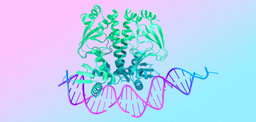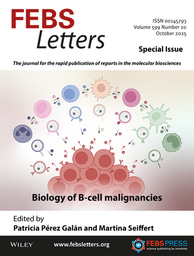FEBS 60th anniversary reflections – Xavier Coumoul, FEBS Integration and Networking Committee Co-Chair

In brief, what is your role at FEBS?
Since my involvement in organizing the FEBS–EMBO 2014 Conference, hosted by the French Society for Biochemistry and Molecular Biology (SFBBM) in Paris, I have been involved in many FEBS activities, including as a member of the FEBS Education Committee and more recently as the Chair of the FEBS Network Committee. This year, I have the pleasure of being the Co-Chair of the Integration and Networking Committee (with Chair Jerka Dumić).
Tell us a little about your research interests and career.
I am Professor of Toxicology and Biochemistry at Université Paris Cité, and co-lead the toxicology-ecotoxicology Master degree of the university. Since March 2024, I am the head of the T3S laboratory with eight research teams. We explore biological pathways involved in a variety of diseases, characterizing different stressors disrupting those pathways and identifying the most relevant targets for therapeutic approaches. I have also held positions of responsibility for the university (board of directors and vice-president) and have been strongly involved in educational innovation.
My own research focuses on the characterization of the modes of action of environmental contaminants. I lead the INSERM METATOX team, which focuses on various pathologies including cancer and metastasis formation, chronic liver diseases and neurodegenerative diseases. Metabolic deregulations are one of the most studied modes of action of my team. I have authored more than 100 peer-reviewed articles in the field of cellular and molecular toxicology. I frequently represent Université Paris Cité and INSERM on environmental health issues, having participated in two INSERM collective reports on pesticides and having been interviewed by numerous media.
What was your first contact with FEBS?
My first paper published in a FEBS Press journal is still the one with the highest number of citations – The aryl hydrocarbon receptor, more than a xenobiotic-interacting protein in FEBS Letters in 2007 (299 citations) – but my “real” first contact was the organization of the FEBS-EMBO-SFBBM conference in 2014. I had to understand the way FEBS works for the first time 😊.
Why do you volunteer your time now to FEBS leadership and committee work?
The variety of scientific activities promoted by FEBS is a perfect illustration of what a university professor should be doing: the balance between research and teaching, the links with civil society, the desire for scientific dissemination and integration. I am proud to be part of FEBS.
Looking back over 60 years of FEBS, what about FEBS or its programs would you pick out as particularly valuable for ‘advancing molecular life sciences’?
For me, the FEBS integration program is part of the European ambition to integrate, network and share.
What are your main goals at FEBS over the next year or so?
I hope that FEBS will recruit many young scientists in the years to come and that they will help to build the FEBS of the 21st century.
What do you see as the big unanswered questions in the molecular life sciences for the future?
The integration of epigenetic processes and the components of the exposome (social, physical, biological, chemical) in the occurrence of biochemical deregulations in organisms on various scales and over several generations.
What does FEBS mean to you?
The F of FEBS means Federation and this word is particularly important to describe the organization, as one of its primary goals is to bring together scientists and not only biochemists, for dissemination, support and networking for scientific activities.
What FEBS opportunities would you recommend to scientists at your or an earlier career stage?
I would recommend to get an account on the FEBS Network and to go to a FEBS meeting. FEBS meetings and conferences offer the opportunity to network with new collaborators, hear about topics from outside your close environment, and develop interest in new activities (Science and Society, Education…). A FEBS meeting is a REAL experience.
Top image of post: participants at opening lectures of the FEBS–EMBO 2014 Conference, Palais des Congrès, Paris, France.





Join the FEBS Network today
Joining the FEBS Network’s molecular life sciences community enables you to access special content on the site, present your profile, 'follow' contributors, 'comment' on and 'like' content, post your own content, and set up a tailored email digest for updates.